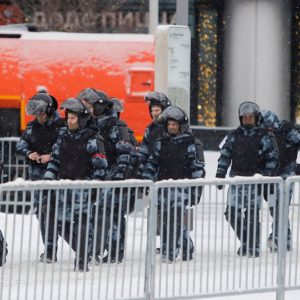Toronto: The Toronto Police Service Board will be considering whether or not to begin the process of acquiring body-worn cameras for its officers as it meets at police headquarters today.
Police Chief Mark Saunders is expected to ask the board to approve $500,000 in funding to
“cover the cost of a fairness commissioner and other external expertise” that is needed to oversee and manage the request for proposals process.
The request for funding comes after the TPS wrapped up a body-worn camera pilot project in March.
During that pilot project, 85 officers within 43 Division, 55 Division, Traffic Services and the Toronto Anti-Violence Intervention Strategy (TAVIS) were outfitted with three different models of cameras over an 11-month period.
A 100-page report released in September revealed that 46 per cent of officers that were involved in the pilot project initially supported the idea of body-worn cameras. By the end of the pilot project in March, that number had increased to 58 per cent.
The report also found that footage from the cameras was valuable in resolving public complaints. It said that six complaints were made during the pilot project but none were substantiated upon review of footage from the cameras. As well, the footage was reviewed during the course of two Special Investigations Unit probes. In both cases, the SIU eventually cleared the officers involved.
In a report that will be considered by the TPS board today, Saunders said that the review of the pilot project showed that body-worn cameras “could be a benefit” to the TPS, though he noted that there is “no evidence” that the camera had an effect on officer conduct.
“The pilot concluded that BWCs (body-worn cameras) were strongly supported by the community as well as our officers. However, there are issues of cost and how the administrative processes (uploading, classification and tagging of videos) impact an officer’s public safety responsibilities and productivity,” Saunders wrote.
The full cost of implementing body-worn cameras service-wide is estimated to be about $85 million over 10-years.
As well, Saunders says that officers involved in the pilot project spent as much as two hours per shift performing administrative functions related to the cameras. That could result in an opportunity cost of up to $20,000 per officer, he said.
“These functions were necessary to upload, classify, and redact the videos,” Saunders wrote. “Performing these functions meant that officers were not available on the road to perform their primary mandate.”
Today’s meeting is scheduled to get underway at 1 p.m.




 Raja Warring to contest againt BJP’s Ravneet Bitu from Ludhiana
Raja Warring to contest againt BJP’s Ravneet Bitu from Ludhiana






























